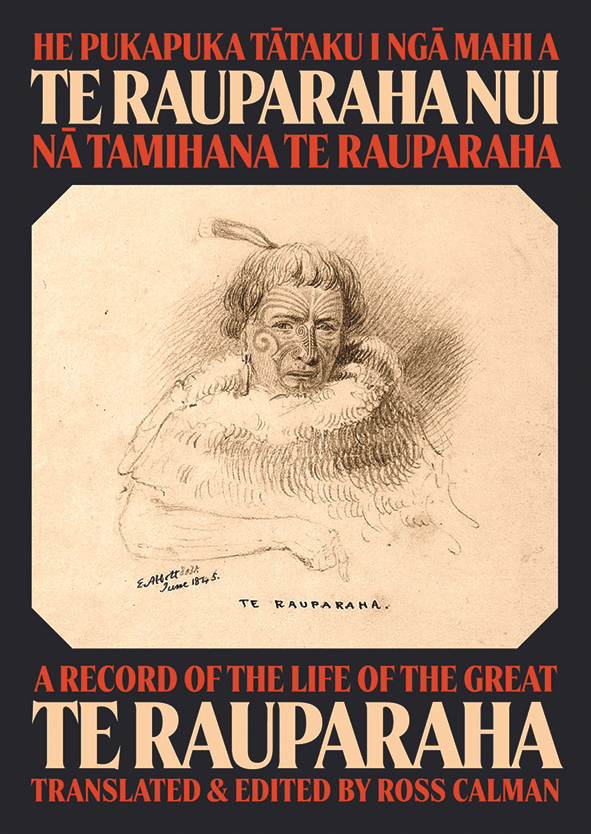He Pukapuka Tātaku i Ngā Mahi a Te Rauparaha Nui: Te Rauparaha - Ross Calman, eds. (2020)

Tamihana Te Rauparaha’s account of the life of his father, Ngāti Toa leader Te Rauparaha, was written in te reo Māori in the 1860s and weaves together authoritative oral accounts. Through Ross Calman’s edited translation, this extraordinary text is available for the first time in a parallel Māori/English edition.
Publication details
Tamihana Te Rauparaha, (R. Calman, eds. and trans). (Auckland, Auckland University Press, 2020)
About the book
Te Rauparaha is most well known today as the composer of the haka ‘Ka mate’, made famous the world over by the All Blacks. A major figure in nineteenth-century history, Te Rauparaha was responsible for rearranging the tribal landscape of a large part of the country after leading his tribe Ngāti Toa to migrate to Kapiti Island. He is venerated by his own descendants but reviled with equal passion by the descendants of those tribes who were on the receiving end of his military campaigns in the musket-war era.
He Pukapuka Tātaku i ngā Mahi a Te Rauparaha Nui is a 50,000-word account in te reo Māori of Te Rauparaha’s life, written by his son Tamihana Te Rauparaha between 1866 and 1869. A pioneering work of Māori (and, indeed, indigenous) biography, Tamihana’s narrative weaves together the oral accounts of his father and other kaumātua to produce an extraordinary record of Te Rauparaha and his rapidly changing world.
Edited and translated by Ross Calman, a descendant of Te Rauparaha, He Pukapuka Tātaku i ngā Mahi a Te Rauparaha Nui makes available for the first time this major work of Māori literature in a parallel Māori/English edition.
Purchase the book here.
This book is part of a series marking the publication of Books of Mana (Otago University Press, 2025). It builds on the project Te Takarangi: Celebrating Māori publications and adds 30 titles to a selected list of 150 non-fiction books, led by Ngā Pae o te Māramatanga in collaboration with Royal Society Te Apārangi.
